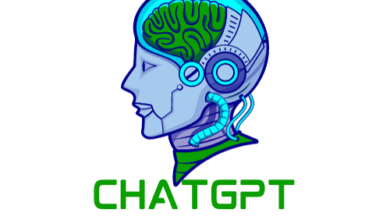Data Science is the transformative field amalgamating statistical analysis, machine learning, data interpretation, and domain expertise. Exploring 24 ChatGPT Prompts For Data Science
Contents
- 1 24 ChatGPT Prompts for Data Science:
- 1.1 1. Exploring Data Structures
- 1.2 2. Statistical Analysis Techniques
- 1.3 3. Introduction to Machine Learning
- 1.4 4. Data Visualization Principles
- 1.5 5. Natural Language Processing (NLP)
- 1.6 6. Feature Engineering
- 1.7 7. Time Series Analysis
- 1.8 8. Dimensionality Reduction
- 1.9 9. Big Data Handling
- 1.10 10. Model Evaluation and Selection
- 1.11 11. Ensemble Learning Techniques
- 1.12 12. Clustering Algorithms
- 1.13 13. Reinforcement Learning Fundamentals
- 1.14 14. Anomaly Detection
- 1.15 15. Ethics in Data Science
- 1.16 16. Hyperparameter Tuning
- 1.17 17. Deployment Strategies
- 1.18 18. Data Wrangling Techniques
- 1.19 19. Case Studies in Data Science
- 1.20 20. Data Ethics and Privacy
- 1.21 21. Recommender Systems
- 1.22 22. Data Science in Business Strategy
- 1.23 23. Time Complexity in Algorithms
- 1.24 24. Continuous Learning in Data Science
- 1.25 FAQs on ChatGPT Prompts for Data Science:
- 1.26 Conclusion:
24 ChatGPT Prompts for Data Science:
1. Exploring Data Structures
Understanding the intricacies of data structures lays the foundation in data science. Dive into arrays, linked lists, and more to comprehend how information is organized and accessed.
2. Statistical Analysis Techniques
Explore statistical methods like regression, hypothesis testing, and ANOVA. Uncover their significance in extracting meaningful patterns from data sets.
3. Introduction to Machine Learning
Delve into the basics of machine learning algorithms – supervised, unsupervised, and reinforcement learning. Understand their applications in predictive analytics and pattern recognition.
4. Data Visualization Principles
Master the art of visual storytelling through data visualization techniques. Learn to create impactful charts, graphs, and dashboards for effective communication of insights.
5. Natural Language Processing (NLP)
Discover the world of NLP, enabling computers to understand, interpret, and generate human language. Explore its applications in sentiment analysis, chatbots, and text summarization.
6. Feature Engineering
Learn the art of selecting and transforming variables to enhance model performance. Understand feature scaling, encoding, and extraction techniques in depth.
7. Time Series Analysis
Dive into time-based data analysis, forecasting trends, and patterns. Understand methodologies like ARIMA and exponential smoothing for predictive modeling.
8. Dimensionality Reduction
Explore techniques like PCA and t-SNE to reduce the number of features in datasets. Grasp how these methods optimize model performance and computational efficiency.
9. Big Data Handling
Navigate the complexities of handling large-scale data. Explore tools like Hadoop and Spark for distributed computing and efficient data processing.
10. Model Evaluation and Selection
Understand metrics like accuracy, precision, and recall. Learn to evaluate and select the most suitable machine learning models for different scenarios.
11. Ensemble Learning Techniques
Discover the power of combining multiple models for improved predictions. Explore bagging, boosting, and stacking methodologies.
12. Clustering Algorithms
Dive into clustering techniques like K-means and hierarchical clustering. Explore their applications in segmentation and pattern recognition.
13. Reinforcement Learning Fundamentals
Explore the concept of agents learning through trial and error. Understand its applications in gaming, robotics, and optimization.
14. Anomaly Detection
Learn techniques to identify outliers and anomalies in data sets. Understand their significance in fraud detection and system monitoring.
15. Ethics in Data Science
Understand the ethical implications of data collection, usage, and bias. Explore frameworks for responsible and fair data practices.
16. Hyperparameter Tuning
Grasp the significance of optimizing model parameters for better performance. Learn techniques like grid search and random search.
17. Deployment Strategies
Explore methods to deploy machine learning models into production environments. Understand containerization and deployment pipelines.
18. Data Wrangling Techniques
Master data cleaning, transformation, and preprocessing. Learn to handle missing values and outliers effectively.
19. Case Studies in Data Science
Explore real-world applications through case studies. Analyze successful data science projects across various industries.
20. Data Ethics and Privacy
Delve deeper into privacy regulations and data protection laws. Understand the importance of ethical considerations in data handling.
21. Recommender Systems
Explore algorithms powering recommendation engines. Understand collaborative filtering and content-based recommendation techniques.
22. Data Science in Business Strategy
Understand how data science shapes business strategies. Explore its role in decision-making and market analysis.
23. Time Complexity in Algorithms
Dive into analyzing the efficiency of algorithms concerning input size. Understand Big O notation and its significance in optimizing code.
24. Continuous Learning in Data Science
Embrace the journey of continuous learning. Stay updated with evolving trends, technologies, and methodologies in the dynamic field of data science.
This compilation of ChatGPT prompts provides a diverse landscape for enthusiasts, professionals, and learners venturing into the realm of Data Science. Explore, engage, and elevate your understanding through these intricately curated prompts.
FAQs on ChatGPT Prompts for Data Science:
- Q: What are ChatGPT Prompts for Data Science? A: ChatGPT Prompts for Data Science are tailored writing suggestions specifically aimed at inspiring and guiding content creation within the realm of data analytics and machine learning.
- Q: How do ChatGPT Prompts aid in Data Science content creation? A: These prompts offer structured ideas and starting points for creating data-centric content, helping in generating insights, explanations, or analyses.
- Q: Are these prompts suitable for all levels of Data Science expertise? A: Yes, they cater to beginners and advanced practitioners, providing varied prompts for different skill levels in data analysis and interpretation.
- Q: Can ChatGPT Prompts for Data Science cover specialized topics within the field? A: Absolutely, these prompts can address niche areas like predictive modeling, data visualization, AI algorithms, and more within the realm of Data Science.
- Q: How frequently are new Data Science-related ChatGPT Prompts generated? A: New prompts for Data Science are regularly created, ensuring a continuous stream of fresh ideas and content-generation aids.
- Q: Are these prompts optimized for SEO in Data Science-related content? A: Yes, these prompts can align with SEO strategies by focusing on relevant keywords and topics within Data Science.
- Q: Can ChatGPT Prompts for Data Science be used across various content formats? A: Absolutely, they are adaptable for articles, blogs, reports, case studies, and other content formats related to Data Science.
- Q: How do these prompts assist in exploring diverse aspects of Data Science? A: They offer versatile angles, allowing exploration of statistical analysis, machine learning models, data interpretation techniques, and more.
- Q: Can users request specific Data Science topics for prompts? A: Yes, users can often request prompts tailored to their specific Data Science interests or focus areas.
- Q: Are these Data Science-related ChatGPT Prompts accessible for free? A: Yes, these prompts are generally accessible at no cost, providing valuable assistance in generating Data Science-focused content.
Conclusion:
In conclusion, ChatGPT Prompts tailored for Data Science serve as indispensable tools, guiding content creators in exploring and explaining various facets of data analytics, machine learning, and statistical modeling. They are adaptable, diverse, and accessible, aiding in the creation of engaging content within the Data Science domain.

